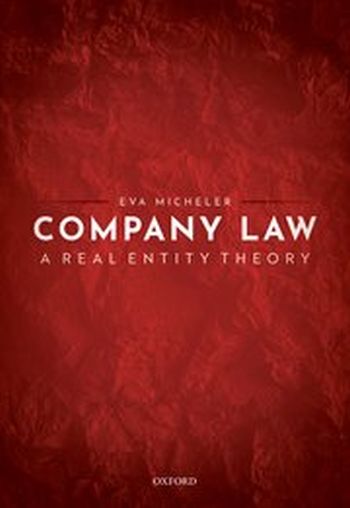
This book advances a real entity theory of company law, in which the company is a legal entity which acts autonomously in law, and company law establishes procedures facilitating autonomous organisational decision-making.
The theory builds on the insight that organisations or firms are a social phenomenon outside of the law and that these are autonomous actors in their own right. They are more than the sum of the contributions of their participants and they act independently of the views and interests of their participants. This occurs because human beings change their behaviour when they act as members of a group or an organisation; in a group we tend to develop and conform to a shared standard, and when we act in organisations habits, routines, processes, and procedures form and a culture emerges. These take on a life of their own affecting the behaviour of the participants. Participants can affect organisational behaviour but this takes time and effort. Company law finds this phenomenon and supplies it with a structure supporting autonomous action by organisations.
The real entity theory advanced in this book explains company law as it stands at a positive level. Legal personality overcomes the problems that organisations are social rather than brute facts and that there is no unique physical manifestation permanently associated with an organisation. The corporate constitution is not a contract - it is best characterised as an instrument adopted on a statutory basis through private action. Shareholders cannot limit the capacity of companies or the authority of the board to bind the company in contract and companies are liable in tort and crime. The statute creates roles for shareholders, directors, a company secretary, and auditors and so facilitates a process leading to organisational action. The law also integrates the interests of creditors and stakeholders.